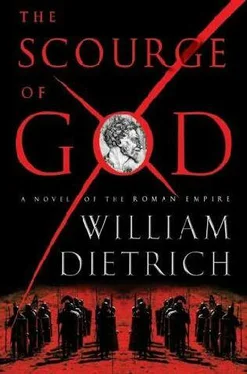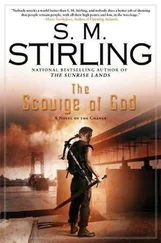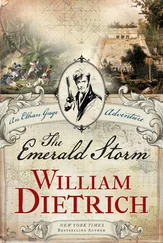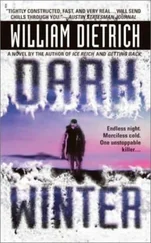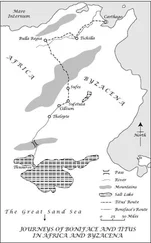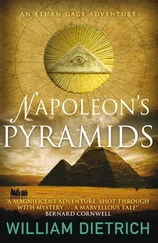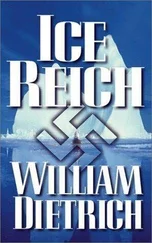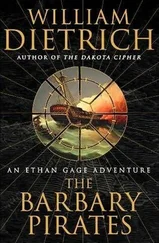William Dietrich - The Scourge of God
Здесь есть возможность читать онлайн «William Dietrich - The Scourge of God» весь текст электронной книги совершенно бесплатно (целиком полную версию без сокращений). В некоторых случаях можно слушать аудио, скачать через торрент в формате fb2 и присутствует краткое содержание. Жанр: Фэнтези, на английском языке. Описание произведения, (предисловие) а так же отзывы посетителей доступны на портале библиотеки ЛибКат.
- Название:The Scourge of God
- Автор:
- Жанр:
- Год:неизвестен
- ISBN:нет данных
- Рейтинг книги:5 / 5. Голосов: 1
-
Избранное:Добавить в избранное
- Отзывы:
-
Ваша оценка:
- 100
- 1
- 2
- 3
- 4
- 5
The Scourge of God: краткое содержание, описание и аннотация
Предлагаем к чтению аннотацию, описание, краткое содержание или предисловие (зависит от того, что написал сам автор книги «The Scourge of God»). Если вы не нашли необходимую информацию о книге — напишите в комментариях, мы постараемся отыскать её.
The Scourge of God — читать онлайн бесплатно полную книгу (весь текст) целиком
Ниже представлен текст книги, разбитый по страницам. Система сохранения места последней прочитанной страницы, позволяет с удобством читать онлайн бесплатно книгу «The Scourge of God», без необходимости каждый раз заново искать на чём Вы остановились. Поставьте закладку, и сможете в любой момент перейти на страницу, на которой закончили чтение.
Интервал:
Закладка:
It was an unnatural way to live and it had made the Romans strange: loud, overdressed, the painted women either too veiled or too exposed, the men too rich or too beggared, gamblers and whores beside monks and nuns, all of them clutching and calling and complaining with gusto. It was an ant’s nest, Edeco thought, and when it all finally burned it would be a blessing to the earth.
Bigilas chattered like a girl as they pushed ahead through the confusion, saying this marble was from Troad and their street was called the Mese and that forum was called Arca-dius, as if Edeco cared. The Hun was instead tabulating the wealth on display: the stalls of gold jewelry, the small hillocks of carpets, the linens from Egypt, the woolens from Anatolia, the jars of wine, the fine boots, and the metallic luster of aristocratic weapons. There were cups and bowls, bedding and pots, copper and iron, ebony and ivory, and fine carved chests to put it all away. How did the maggots make such things?
Periodically the Mese opened to wider places that Bigilas called forums. Many had statues of frozen men, for what purpose Edeco didn’t know. Tall columns jutted to the sky but held nothing up. One was topped by a frozen man called Constantine. This was the emperor who had founded the city, Bigilas explained.
The Hun was more intrigued by a monumental four-sided arch at an intersection called the Anemodoulion. At its top was a weathervane, and the Hun watched in amazement as its eagle pointed this way and that. What foolishness! Only Romans needed a toy to tell them which way the wind blew.
Bigilas also pointed out the arches of what he called an aqueduct. Why, Edeco wondered, did the Romans build rivers instead of simply living by one? The Earth Mother gave people everything they really needed, and yet the Romans toiled their whole lives to duplicate what was free.
As they advanced toward the apex of the peninsula, the houses, palaces, and monuments grew grander and the noise even worse. The clanging from the copper factories was like the heavy hail of the steppe, and the whine of the marble saws was almost unbearable. Only the gates of the Hippodrome were more appealing, giving a glimpse of open sand surrounded by a huge oval enclosure made of steps that went up to the sky. “What is this?”
“The place of chariot races and games,” Bigilas replied.
“When they compete there are eighty thousand people here.
Have you seen the scarves and ribbons? Those are our factions, the Greens the common folk and the Blues the nobles. There’s a great rivalry, betting, and sometimes riots and fights.”
“For what?”
“For who wins the game.”
So they spent their energies on pretend war instead of the real thing.
And with that they came to the palace of Chrysaphius.
The chief minister of the Eastern Roman Empire lived, in the manner of all beings in such exalted positions, on his wits, watchfulness, and ruthless calculation. Like so many in this new era of Roman government, Chrysaphius was a eunuch. It was his early service to, and access to, the emperor’s beautiful wife, Aelia-made possible because of his castra-tion-that had started his own precipitous rise. He was now, by some accounts, more powerful than the emperor himself.
And why not? Having observed the cunning of women his entire life, the minister had long concluded that the absence of balls did nothing to subtract from courage and everything to improve clarity of mind. The emperor Theodosius was normally equipped but was a hapless general and clumsy negotiator who had been dominated his entire life by his older sister, a woman so aware of the proper ranking of things that she had foresworn sex and devoted her life to religious chastity. Such purity made her as formidable and revered as it made her prickly and vindictive. What a contrast the dangerous Pulcheria was to the dim and lustful sister of the emperor of the West, a girl named Honoria, reportedly so stupid that she had been caught in bed with her palace steward! If only Pulcheria would exhibit such weakness. But, no, she seemed as immune to such feelings as Chrysaphius himself, which made her dangerous.
Pulcheria had first gotten rid of lovely Aelia by accusing her brother’s wife of adultery, driving her in humiliation to Judea. Chrysaphius had barely escaped being caught up in that scandal himself, since Aelia had been his patroness. Yet his skill at negotiation had made him so indispensable, and his emasculation had made him so immune to sexual chicanery, that even Pulcheria could not dislodge him. Nor could the minister, in turn, persuade the emperor that his sister’s public holiness was only a mask for private spiteful-ness. Now she was Chrysaphius’s most implacable enemy.
The minister’s own greed and treacheries had made him many foes, and he knew his unsexing added to his unpopularity. He needed a dramatic achievement to fortify himself against Pulcheria.
This was why the oafish barbarian Edeco was now rudely stuffing himself at Chrysaphius’s table.
So far, the political seduction had gone as planned. Bigilas had met the Hun outside the city walls and had escorted him through Constantinople, the translator confirming that he had dazzled the tribesman with the glories of Roman architecture, the richness of Byzantine markets, and the density and vigor of the population. The futility of assaulting Nova Roma should be evident by now. Edeco had then come into Chrysaphius’s palace, gaping like a peasant at its marbles, brocades, tapestries, carpets, pools, fountains, and carved cedar doors. Sunlit courtyards were filled like a meadow with flowers; bedchambers were seas of silks and linens; and side tables groaned under mountains of fruit, bread, honey, meat, and gleaming olives.
The Hun had grazed like a bull from room to room.
Chrysaphius had tried to get two of his tittering slave girls to coax the barbarian into one of his baths, a diver-tissement that would have made the creature more bearable at close range, but the Hun had suspiciously refused.
“They fear water spirits,” the translator had whispered in explanation.
Chrysaphius groaned. “How can they stand to reproduce themselves?”
Bigilas had finally persuaded Edeco to shed his furs and armor for a robe of Egyptian cotton that was laced with golden thread, edged with ermine, and spotted with precious gems, a freshening that was like throwing silk on a musty bear. The Hun’s hands were still as rough as a carpenter’s and his hair suited to a witch, but the unfamiliar and perfumed clothes made him fit a little more naturally into the triclinium that overlooked the Sea of Marmara. Lamps and candles lent a glittery haze, a cool breeze came off the water, and constant refilling of the Hun’s wine goblet seemed to have put him in an agreeable mood. It was time for the proposition.
The Huns were dangerous but greedy, Chrysaphius believed. They were little more than horse-borne pirates, who had no use for cities and yet had an insatiable hunger for their products. They hated the Romans because they envied them, and they were as corruptible as children lured by a bowl of sweets. For more than a decade the chief minister had avoided a final showdown with Attila by buying the madman off, wincing as the demand for annual tribute had risen from the three hundred and fifty pounds of gold demanded by Attila’s father to the seven hundred insisted on by Attila’s brother to the more than two thousand demanded by Attila himself. It was more than one hundred and fifty thousand solidi per year! To pay the six thousand pounds demanded to end the war of 447, the city’s merchants and senators had had to melt their wives’ jewelry. There had been suicides amid the despair. More important, there was barely enough money left to pay for Chrysaphius’s luxuries!
Читать дальшеИнтервал:
Закладка:
Похожие книги на «The Scourge of God»
Представляем Вашему вниманию похожие книги на «The Scourge of God» списком для выбора. Мы отобрали схожую по названию и смыслу литературу в надежде предоставить читателям больше вариантов отыскать новые, интересные, ещё непрочитанные произведения.
Обсуждение, отзывы о книге «The Scourge of God» и просто собственные мнения читателей. Оставьте ваши комментарии, напишите, что Вы думаете о произведении, его смысле или главных героях. Укажите что конкретно понравилось, а что нет, и почему Вы так считаете.
